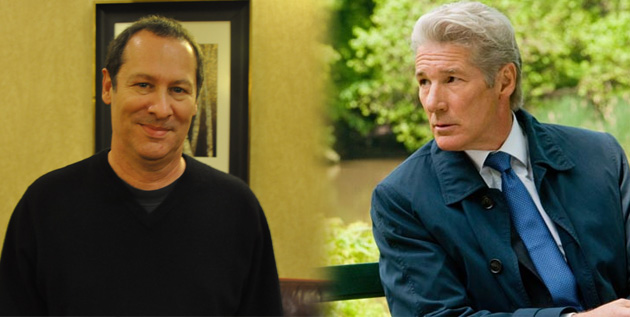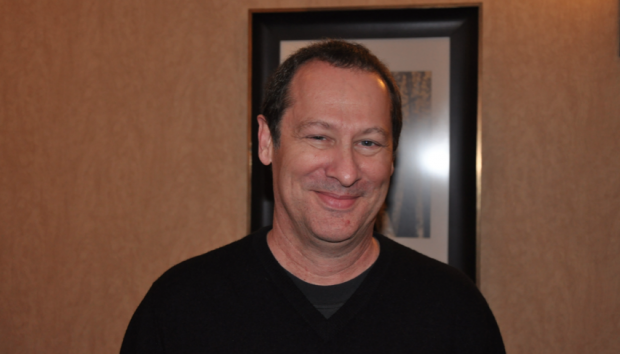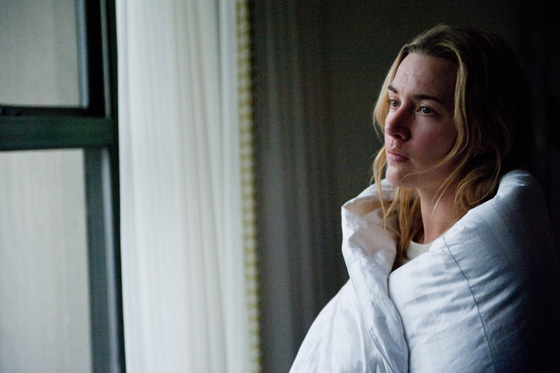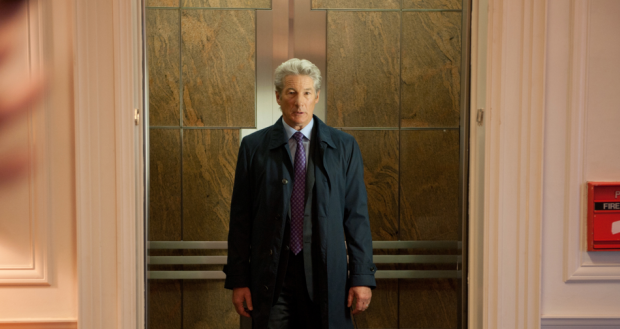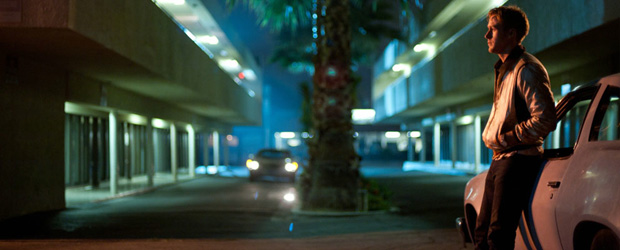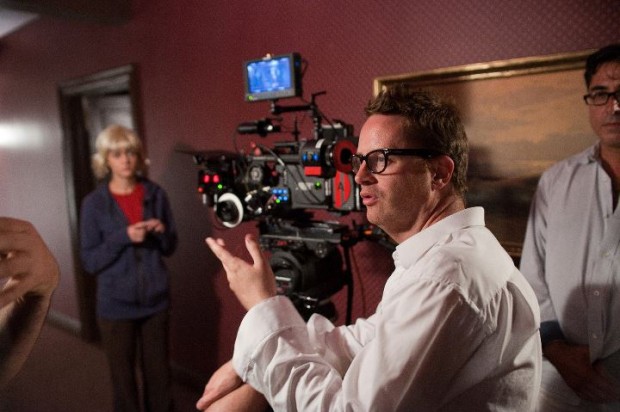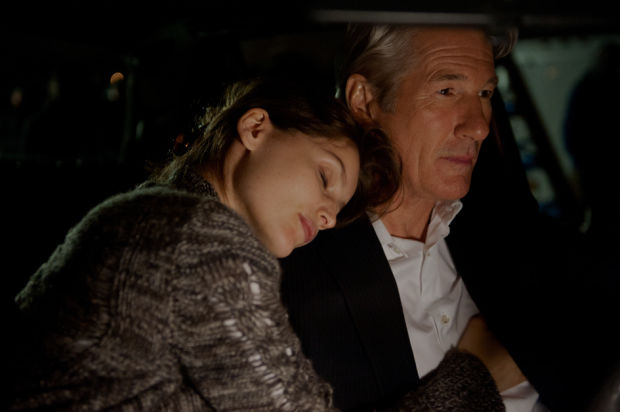As any good filmmaker will tell you, a good music composers is a vital part to any film success. Cliff Martinez, perhaps best known for his collaborations with director Steven Soderbergh, has had an interesting and diverse career working on many fantastic films. Last year he created the score for Contagion along with Nicolas Winding Refn’s Drive. This year he has returned to Park City as a juror for the Sundance dramatic competition as well as having composed music for the Richard Gere vehicle Arbitrage. I was lucky enough to sit down with the esteemed composer and discuss his career, how he met Soderbergh and advice for aspiring musicians looking to break into film composing.
The Film Stage: How do you decide what kind of projects you want to work on and what attracts you to a filmmaker, film, or script? What needs the Cliff seal of approval?
Cliff Martinez: A phone call is all it takes.
[Laughs]
I’m easy. I wish I was in a position to be selective and say, ‘Oh, I don’t do those things’ or ‘I don’t do this’ or ‘I don’t do that’, but the truth is I’m easy. And the music business is such that you can’t say no very often. I mean there’s certain things that I… not that I want to do a tampon commercial. I don’t draw the line anywhere, really. I’d prefer to stay in feature films. Occasionally I’ve been offered television pilots and commercials, which I’d actually like to do more of. I’ve done a little bit of video game work. I’d like to stay in features but I am not selective and I don’t think anybody in our business can afford to be that selective. But luckily when you’ve been around for a while, there’s a typecasting of sorts that occurs with composers that’s good and it’s bad. I should be so lucky as to get a steady diet of films like Narc or Traffic. Films where people get shot, stabbed, and blown up. So I seem to get cast for a certain kind of movie. The kind of things you’re known for or people think you do well, that begets more of the same. So it seems like a lot of the similar kind of movies kind of come my way. But I’d actually like to branch out more and do… I don’t know if I’m ready for a romantic comedy, but I’d like to do lighter things. But I don’t say ‘No’ too often.
But as far as movies go, it’s always better if you love what you’re working on. You wake up everyday and you’re inspired by the film. So I guess I just like sincerity in a filmmaker. I love creative directors. I love [Sundance] types of films. I love the films I’ve seen at the film festival. I love independent-minded films. Guys that have their unique take on things. And the few times I’ve done the big studio things that are a real group thing, those are fun too because in the case of Solaris, you get a 90-piece orchestra, or Contagion. So the big stuff that isn’t independent has its perks as well.
I absolutely loved Contagion, by the way. And the score was phenomenal.
I thought it should have gone further. I loved it and I thought it was a…
Gone farther in what way?
Well, more successful. I mean all I’ve heard about this year was Drive and I thought, ‘Well, Contagion was great.’
Contagion made my list and Drive was an honorable mention, so there you go. I really loved it. I thought it was fantastic.
I thought it was great. I thought it was unique.
That was the most effective horror/thriller of the whole year. It just made you so…
It was a horror film, Steven Soderbergh style.
Exactly. And it was fantastic.
And you never get to see what the film was before it was finished, so that was the most tweaked-upon Soderbergh film I’ve ever worked on. That went through more revision, more re-shoots, more junk got left on the cutting-room floor, more rearranging and cutting than I’ve ever seen Steven do. So I was particularly proud of it because it started out in a very different place and it came a long way.
Can you talk a little bit about your process of scoring and is it different when working with different filmmakers or do you have a set method?
I think my method is pretty consistent. Usually begins with looking at a script and that’s probably where the first idea might trickle in. The second step is usually a conversation with the director. And he’ll say whatever he has to say about his thoughts on the film in general and the music specifically. And then the next step is kind of up to me. I’ll kind of lay on the couch and stare at the ceiling, and imagine what it will sound like. Sometimes directors have a very specific idea of what they want and I have to figure out how to do what they want my way or fit their aesthetic and approach around mine.
How was it working with Nicholas [Jarecki] for Arbitrage? Did you have any kind of preconceived discussion about the score before going in?
A lot of times directors really communicate what they like through the temp music. I think that was the case with Nicholas. He liked my previous work on Traffic and The Lincoln Lawyer. There was a pile of that in the temp score. When they do that that’s a pretty specific direction. You don’t even need to talk to me if you’re going to use my music there. Put John Williams in there and then we’ve got something to talk about. But because my music was kind of the blueprint for the score, and he was very adamant about it, so I think in that case temp scores can have a lot of influence on the direction you take. The placement, the style, the approach. And that was really kind of the blueprint I got from Nicholas. And then we had the usual. I would start to write stuff, ship it over to him, he would give me his notes. He was very meticulous.
In fact, he went to Poland to mix it. I think he took three weeks to mix it. Came back, didn’t finish it. Was working on it in LA. I don’t know how long he’s been chiseling away at it, but it’s been quite a while. I got an email from him two days before the festival starts, ‘I just finished it.’ And I’m like, ‘Are you kidding me?’ I thought he had finished it months ago. And then I saw him just before the screening and they did a print and he goes, ‘Yea, I’m going to go into it again. Anything you want to change?’ I was fine with it months ago. So he was very demanding because it’s his first film and he had a concern for detail that was kind of unprecedented with most directors I’ve worked with.
But it was a good experience. It was a good film. And what I really liked about it was that it was a film about a rather alien landscape of high finance and his parents happen to be in the financial trade. His brothers are in the phone business. His mom and dad are stock traders. So I knew when I first saw it I knew he wasn’t a guy that did a month of research. He was actually steeped in the subject matter. So I think that was what was special and unique about the film. And I haven’t seen Richard Gere in a while and he was just… to get up everyday and just watch him. I think he really pulled the whole thing together.
Can you talk a little bit about your relationship with Steven Soderbergh? Was that your first film that you scored with him?
Yea, my first scoring job was one episode of Pee Wee’s Playhouse on television. That was my very first. So I went from that to Sex, Lies, and Videotapes.
[Laughs]
So I had a little experience under my belt. As a matter of fact, one of the first things Steven heard of mine was my reel, which had Pee Wee’s Playhouse, and he said something to the effect of, ‘Oh, that will be perfect for my movie.’
[Laughs]
And this was before he had shot Sex, Lies, and Videotapes. I was doing some half sound design, half musical stuff for Alien Nation. A friend of mine is a sound designer. They run a sound house. They do sound effects and dialogue, and he was asked to do music the aliens might listen to. Something that was not exactly musical but was half sound effect and half music. And Mark [Mangini] called me up to do that. So I was doing this stuff where I would go into their library and make a drum set built out of chin socks and car crashes and weird sound effects, and make a drum set out of it. I was just having fun. I’m doing something not at all musical. Just really weird. And they never used it.
But Steven Soderbergh was his roommate and Steven just came in and sat in one day and before we were even introduced he was making comments and I was like, ‘Who is this guy?’ But his ideas were really good. He’s not a musician, but he’s actually smarter than a musician when it comes to putting music to picture. And that’s how we met. I gave him the tape with Pee Wee’s Playhouse and he had heard this weird stuff from Alien Nation and he’s going, ‘The stuff you’re doing is great! It’s going to be great for my film.’ And I said, ‘Awesome. Sign me up.’ And then I get Sex, Lies, and Videotapes and I’m like, ‘What universe is he in?’ So I called him up and was like, ‘It’s a great film. I love it. Glad to be a part of it. But I don’t think that Pee Wee stuff… I don’t see how that’s going to work.’ And he goes, ‘Oh, yeah. No, we’ll do something else.’
So that’s how we met. We’ve had a near monogamous relationship for 10 films and I can’t think of any other director that I’ve even worked with twice. So it’s a special relationship to me and I think there’s a certain kind of… you’ve known somebody for years and you’ve worked with them on a lot of films and there’s a certain amount of telepathy. We just kind of stare at each other. The thoughts… ‘Oh, so you didn’t like that cue? Too many black cues? Oh, all right.’ I know his likes and dislikes, and he knows me pretty well too so those are special relationships.
What’s one of your favorite, finished scores that you’ve done?
Solaris. Yeah, but a close second is probably not well-known, is King of the Hill.
King of the Hill?
It’s my third film. Steven’s third film.
I don’t think I’ve seen that one.
It’s rare. They had a screening of it at the silent movie house in Hollywood. It’s not silent, though. Two or three months ago and it really held up well. It’s based on a novel about a kid in the depression era. And Steven temped it with John Williams.
[Laughs]
Why he hired me I have no idea. We just had a great relationship. But I remember he gave me some music from 1941, the comedy with John Belushi, and I was just like, ‘What am I going to do?’ And then, because it was a very low-budget film, I tried to emulate the sound of a symphony orchestra with the technology that was available then, which was pretty crude. So it’s like fake orchestra and I tried to do a semi-orchestral score in a bit of a period tone. Which, I’m the wrong guy to do that. But I think the thing I always bank on is to go for something and fail in an interesting way and it was one of the rare times when Steven did a film that was a sentimental, emotional film. He’s not usually big on emotionally demonstrative performances or stories and he doesn’t care for that in the music. But we went down that road for that film. It’s one of the few scores that I can, like Solaris, listen to repeatedly. Usually I am so sick of the films and sick of my own music that I never want to hear it again. Those two are top of the list.
Any filmmakers you’ve really wanted to work with but haven’t had a chance to?
I think that the other guys that have the great relationships are… but I wouldn’t want to steal their gigs. David Fincher. Darren Aronofsky. Alfred Hitchcock would have been nice. I wouldn’t mind working with Steven Spielberg, Coen Brothers; Sergio Leone would be nice, lots of people. David O. Russell.
Do you have any advice to aspiring composers and musicians looking to break into scoring?
Yeah, forget about it.
[Laughs]
No, I don’t mean to go negative but I think it’s a brilliant time to be in music because the music technology is so amazing and moving so fast. And the creative power and possibilities that it offers are just… you have a chance to make music that nobody’s heard. On the other hand, the technology has kind of destroyed the record business and it was a reckless career choice 30 years ago. So now I think it’s absurd. The idea of being a career drummer now? Forget it. But I would say that learning the craft of writing music is a given. But the other thing that a lot of young composers don’t think about enough, I think, is you’ve got to be a bit of a junior filmmaker.
I think one of the things that’s great about film music or about films is that it’s a real collaborative art. And that’s what I love about it. You have screenwriters, cinematographers, photographers, actors, directors, production designers, set designers. There’s all these different kinds of disciplines that come into it and I think what really give a composer an edge, or anyone that I’ve met that’s good at what they do, like sound people astonish me at their knowledge of storytelling and filmmaking. That informs their little niche of sound. And the good composers kind of think the macroview too. So I think that’s one thing that’s crucial; to understand the larger process. Not just the music end of it.
And when people specifically ask me ‘How do you get into the business?’ I would have to say the talent’s kind of a given, although I didn’t know what I was doing, really. I learned it, on the job. So I’d say your personal contacts; your address book is the most important tool.
That’s true for a lot of things.
It’s the most important tool that you have. I can only think of my own personal success story, the story I told you about how I bumped into Steven. That’s what kick started my whole career. And most everybody I know, that’s it. They had a relationship with a director or two. Or somebody that got them into the business. And you may not be able to run into Steven Spielberg at the produce compartment comparing melons, but if your friends are like mine were, dialogue editors or gaffers. I mean, if you just surround yourself with people who are in the business. If your social circle includes industry people, I think that’s a smart move.
My final question is do you have any projects that you are currently working on or plan on working in the future for this upcoming year?
When I finish this up I’m going to change the water on my tofu. That’s at the top of my list. But the only definite thing I have is Nicolas Refn’s new film called Only God Forgives. It’s going to be shot in Thailand.
I actually interviewed him at Cannes and I asked him about it. He was telling us about it and it sounds so cool.
Well, then maybe you can…because I don’t know how to describe it. Almost exclusively Thai cast. Ryan Gosling‘s in it. So I don’t know. I have a script. He starts shooting in February. I probably join the party around April. And that’s the only thing that’s really in the books at this point.
Has he talked to you at all about Logan’s Run?
No. No, but I’m on the edge of my seat.
You’d be perfect for it.
I hope we’re friends by the end of Only God Forgives. That would be awesome. You know, one of the things I’ve always thought was after Solaris, ‘Oh, great, now I’ll start getting calls for science fiction films.’ I haven’t heard anything from anyone.
It’s a different kind of mold. But it’s still very sci-fi. I love the original but I like Soderbergh’s remake a lot.
Well, I hope I live to tell you about my experience on Logan’s Run.

